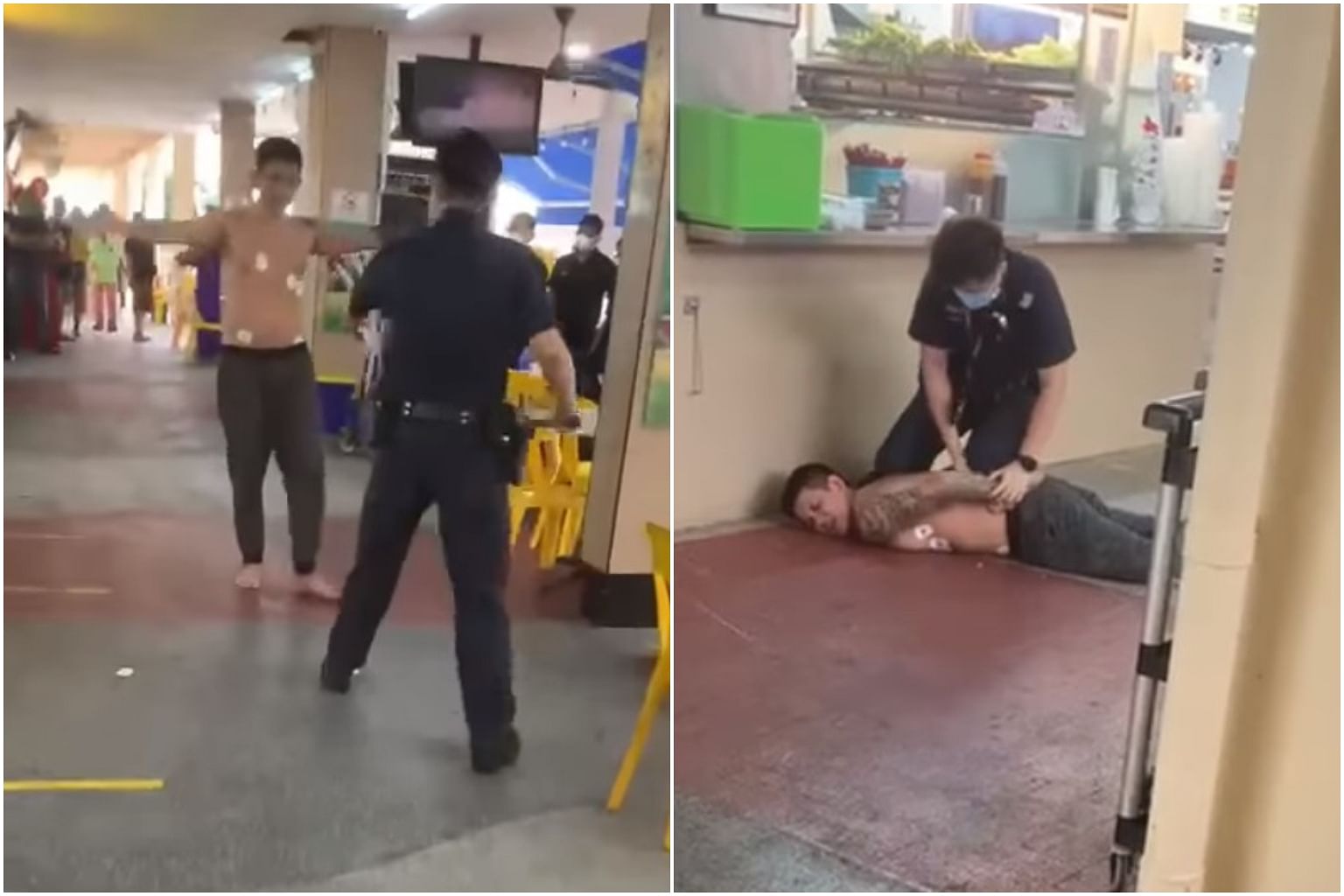SINGAPORE - A police officer on patrol sees an increasingly agitated person waving a chopper around in a crowded area.
To ensure public safety, the officer uses a taser in accordance with standard operating procedure but injures the person as a result.
Under proposed changes to the law, this officer would not be personally liable as he would have been acting in good faith and with reasonable care, said Minister of State for Home Affairs Desmond Tan in Parliament on Monday (Aug 2).
Speaking during a debate on the Police Force (Amendment) Bill, he illustrated how a raft of changes under the Bill would enhance the Singapore Police Force's (SPF) operational capabilities and readiness.
These changes include powers to make a forced entry into premises such as homes to protect people from injury or death, allowing the commissioner of police to delegate some powers to civilian officers, and stricter penalties for evading roadblocks.
Mr Tan told the House that police officers have to make split-second decisions in order to save lives, even if their decisions may lead to injury or damage to property.
While they can rely on the common law defence of necessity, there is a need to make it explicit that officers will be protected from liability if they act in good faith and with reasonable care, Mr Tan added.
He emphasised that the change will not mean that officers can act with disregard. "Officers who act irresponsibly will still be subjected to disciplinary proceedings or even criminal proceedings."
Mr Desmond Choo (Tampines GRC), a former police officer, said any regulations determining what constitutes good faith and reasonable care should not be overly rigid or prescriptive.
"Nothing affects the ability of the officer to discharge his duties more than knowing that the law does not protect them," he added.
"Even the best officers can and will make mistakes. And these mistakes are crucial to the police's collective learning. Mistakes can also come from taking well-managed risks."
Mr Sharael Taha (Pasir Ris-Punggol GRC) said recent allegations against the police on social media underscores the need for such protections.
He cited an incident last month where a shirtless man was subdued using tasers after allegedly challenging officers to a fight at a coffee shop in Lavender.
"What if the individual who was tased had died due to a pre-existing medical condition? Shouldn't the officer be protected from liability?" he asked, adding that there should be stiffer penalties for those who act irresponsibly.

On new powers allowing forced entry during medical emergencies, Mr Tan cited a case in June where the police received a call about a senior citizen who lived alone.
A neighbour had heard a weak voice asking for help and told police that the elderly man had just returned home from the hospital. Unable to contact the man or his next of kin, the officers made a forced entry and found he had fallen down and was unable to move.
While these officers can again rely on the defence of necessity, the Bill will give greater assurance that they can make such forced entries to save lives, Mr Tan said.
On this, Mr Sharael asked how the law will define medical emergencies, and how police officers will make assessments if the emergency occurs behind locked doors.
Nominated MP Shahira Abdullah said the proposed powers will be especially important in domestic violence cases, but cautioned that there should be clear guidelines in place and training for officers.
Dr Shahira, Mr Sharael, and Workers' Party chairman Sylvia Lim (Aljunied GRC) also raised concerns about proposals to allow the commissioner and deputy commissioner of police to delegate some of their powers to non-uniformed personnel in leadership positions within the SPF.
Mr Tan had cited how under the current law, the director of the Commercial Affairs Department has to ask a police officer to issue standard operating procedures to investigation officers on his behalf.
This hampers operational efficiency, he said.
He added that some powers cannot be delegated, such as those under the Public Order and Safety (Special Powers) Act.
Ms Lim said the wording in the Bill is unclear, and asked Mr Tan to explain when such delegations of power will be necessary.
She added: "While these civilians may be senior enough in grade, would they have the necessary experience and credibility to exercise command responsibilities?"
Meanwhile, backbenchers welcomed proposals to increase penalties and broaden the definition of offences related to evading police roadblocks.
Mr Choo suggested imposing a minimum penalty, including a mandatory jail term, while Mr Gan Thiam Poh (Ang Mo Kio GRC) asked whether empowering auxiliary police forces to conduct roadblocks will help with problematic sections of road and increase deterrence.
The debate on the Bill will resume on Tuesday (Aug 3).


